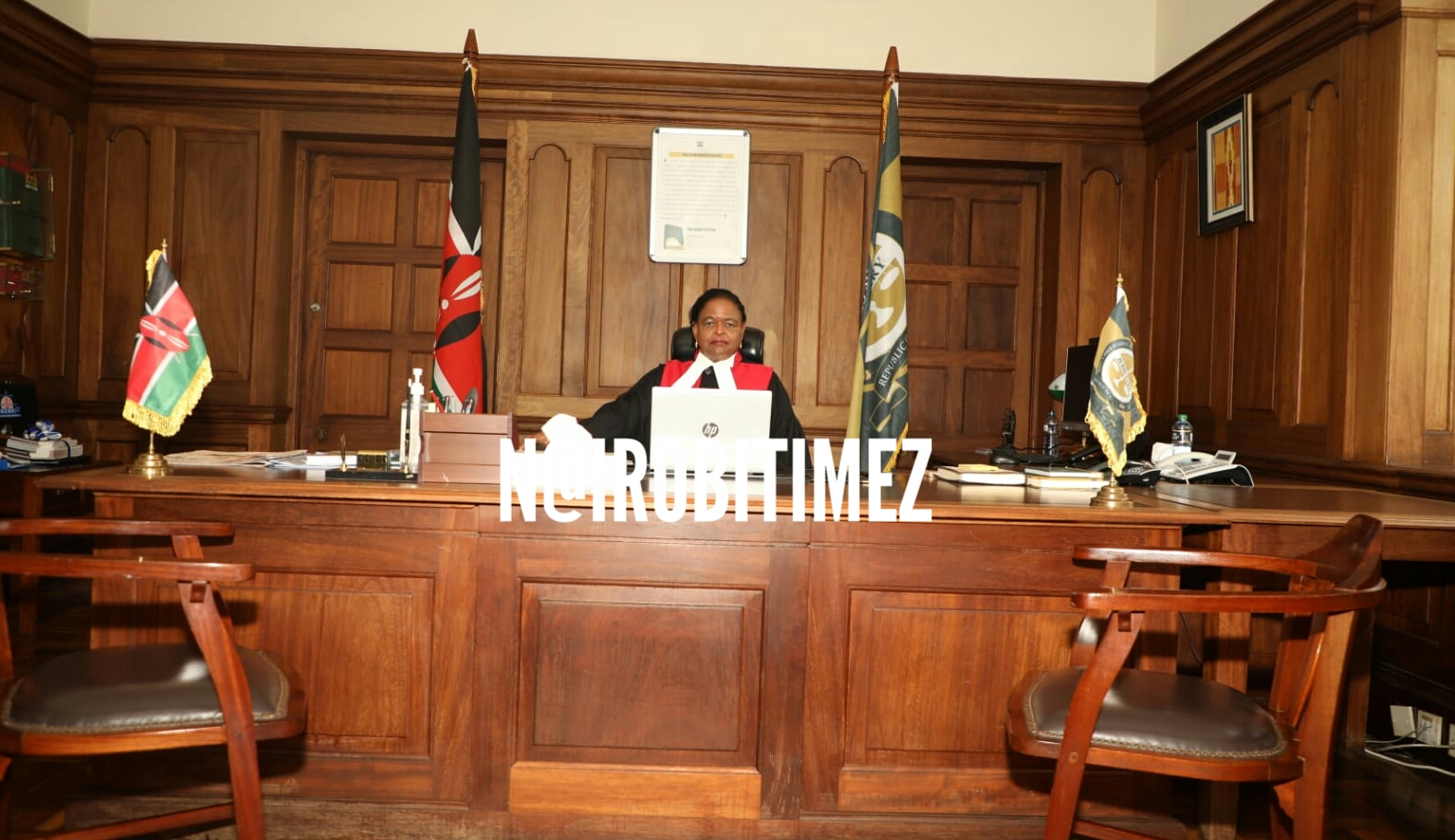BY SAM ALFAN.
Chief Justice Martha Koome has said the Judiciary is prepared to handle hundreds of election petitions that will be filed after the August 9 General Election.
Justice Koome said any party aggrieved by actions or decisions relating to the electoral process should rest assured that courts have put in place mechanisms that guarantee competent, fair, transparent and expeditious resolution of cases.
“I urge all duty bearers, all Kenyans, the political class and the media to work together to make the 2022 general elections, a free, fair and peaceful elections. It is only by working together that we will protect the right to vote which is one of the most fundamental, and cherished, principles of our democracy,” the CJ said.
The CJ said despite the budgetary constraints that the Judiciary continues to face, courts will do all it can to ensure that it mobilizes the required resources to achieve the set goals.
She added that implementing the Judiciary’s Election Preparedness Work Plan optimally requires finances.
The CJ said judges have been actively engaging other agencies in the government including the National Treasury to ensure adequate resourcing of the Judiciary to undertake its EDR role optimally.
She thanked the development partners that have engaged directly with the Committee and expressed willingness to partner with the JCE in the implementation of the Work Plan. We are grateful that the Development Partners have continued to have faith in the Judiciary and have come forward to support our plans.
“I thank IFES and the Foreign, Commonwealth and Development Office (formerly DFID), Electoral Law and Governance Institute for Africa (ELGIA), International Commission of Jurists, Kenyan Section (ICJ – K) and Attorney General Alliance Africa (AGA-Africa) which are already onboard as partners to the JCE”, she added.
Koome added that they have supported various Stakeholders Meeting and revision of the Committee’s Strategic Plan as well as some of the EDR Trainings. I thank them for their willingness and readiness to work with the Judiciary and welcome their hand of support.
Justice Koome added that this is now time for consolidation of the gains and lessons from the previous two election cycles.
“The IEBC as the body vested with the mandate of conducting elections has clear guidance on the standards to adhere to and parameters within which to manage the elections given the Judiciary’s interpretation of the Constitution and electoral laws in the past electoral cycles and it is therefore our expectation that the lessons from the past judicial decisions are being considered by the IEBC as it prepares to conduct the elections,” she said.
The Supreme Court’s nullification of the 2017 presidential election and the Court was categorical that it nullified the election because the IEBC did not conduct the presidential election in conformity with the Constitution and electoral law.
“The Supreme Court did not find any evidence of misconduct by the candidates but instead saw in evidence, a systemic institutional problem. More specifically, IEBC failed to ensure that the process of “transmission and declaration of results” of the presidential election was verifiable as stipulated by the Constitution,” she added.
Justice Koome said the top court specified that IEBC while discharging its constitutional mandate must always conform to the Constitution and electoral law by ensuring that all requisite processes are simple, accurate, verifiable, secure, accountable and transparent.
She said the judiciary’s expectation is that the IEBC is consciously working to ensure its processes meet the demands of the principles of the electoral system as elaborated in Articles 81 and 86 of the Constitution.
Judges, she added, also expect IEBC to have worked or to be working with stakeholders to consolidate the progress made in integration of technology to manage Election Day activities and management of results and there should be clear steps to address some of the challenges in integration of technology in voter identification and transmission of results.
“These will help address some of the challenges identified in the last two election cycles. We are hopeful that any electoral law reforms, including review of the Elections (General) Regulations, takes into account the opinions expressed by the courts on the need for all electoral laws and regulations to conform with and promote the constitutional standards on electoral integrity and accountability,” added CJ.







